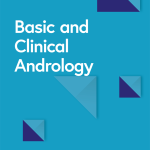Transgender, nonbinary, and gender expansive (TGE) persons experience pregnancies and have abortions, yet abortion care remains rooted in a gender binary, often centering the needs, experiences, and challenges of cisgender women [1,2,3,4,5]. Worldwide reproductive justice and gender equity struggles are intertwined, as gender inclusion is often at the forefront of conversations surrounding abortion rights, inviting the opportunity to look at abortion rights within the lens of queer inclusion [6].
Gender-affirming care is a widely recognized medical intervention that can range from hormone treatments to affirming language which can increase social, emotional, and physical health outcomes among TGE individuals [4, 7]. The American College of Obstetrics and Gynecology recommends the use of gender-affirming care in abortion care [2, 4]. The World Professional Association for Transgender Health (WPATH) has emphasized the global importance of accessible abortion care and gender-affirming care for gender diverse individuals [5].
Despite clinical guidance supporting gender-affirming sexual and reproductive healthcare (SRH), barriers for TGE abortion seekers persist [2, 3, 5, 7,8,9]. According to the 2022 U.S. Transgender Survey, 24% of respondents reported not seeing a doctor when medically necessary and 48% reported a negative provider experience related to gender identity [10]. TGE patients similarly report high rates of mistreatment in SRH facilities, often heightened through intersections with other experiences of marginalization, particularly related to race, socio-economic, and insurance status [1, 2, 7, 9,10,11].
Some literature has reported the challenges of TGE abortion-seekers, yet little is documented on abortion providers’ awareness of access barriers or specific needs of this population [1,2,3]. To contribute, we conducted an exploratory case study with key informants to understand their perception of the needs of TGE abortion seekers with specific considerations for those in restrictive abortion settings in the United States.




Add Comment